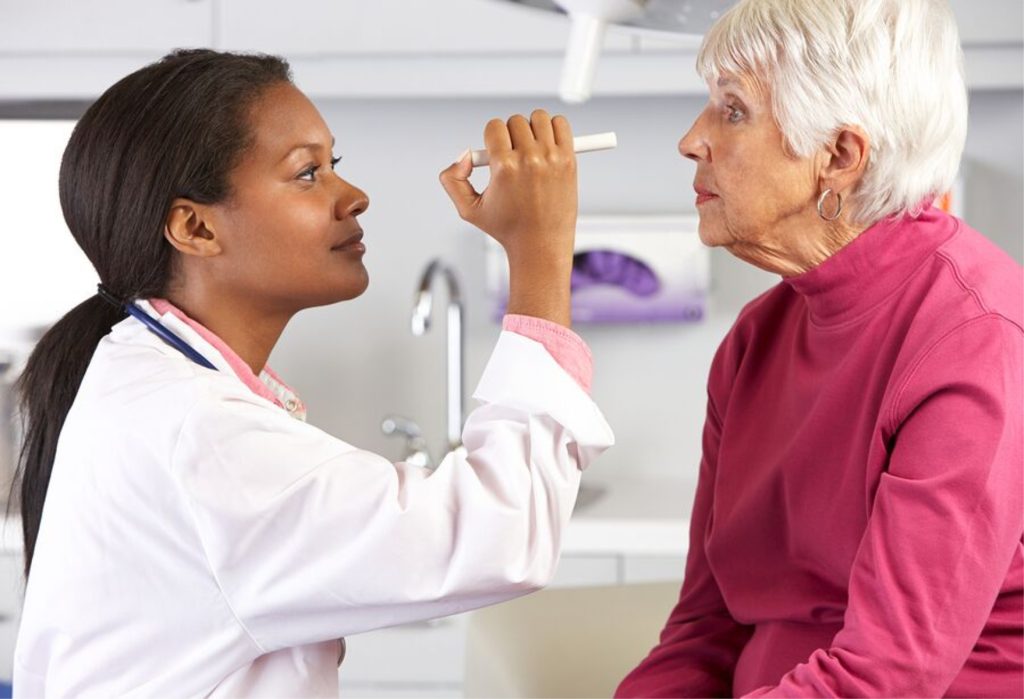Welcome, seniors, to a guide dedicated to the windows of your soul: your eyes! As we age, our eyesight may change, but that doesn’t mean we can’t take steps to maintain healthy vision. In this article, we’ll explore practical tips and habits to safeguard your eyesight and enjoy clear vision for years to come.
Understanding Vision Loss:
Before diving into prevention tips, let’s understand why vision loss occurs. As we age, our eyes undergo natural changes, such as decreased pupil size and reduced tear production. These changes can lead to common age-related eye conditions like:
1. Presbyopia: Have you noticed it’s harder to read small print or see objects up close? That’s because the lenses in our eyes become less flexible over time, making it difficult to focus on close-up objects.
2. Cataracts: Imagine looking through a foggy window – that’s how cataracts affect your vision. Cataracts occur when the lens of the eye becomes cloudy, causing blurry or dim vision.
3. Age-Related Macular Degeneration (AMD): This condition affects the macula, the part of the retina responsible for central vision. AMD can cause a loss of sharp, central vision, making it challenging to read, drive, or recognize faces.
Now that we understand the common culprits, let’s explore practical tips to keep your eyes healthy:
1. Schedule Regular Eye Exams:
Think of eye exams like check-ups for your vision. Schedule regular appointments with an eye doctor, even if you don’t wear glasses or experience vision problems. Early detection of eye conditions can prevent further damage and preserve your eyesight.
2. Maintain a Healthy Diet:
You’ve heard the saying, “You are what you eat.” Well, the same applies to your eyes! Eat a balanced diet rich in fruits, vegetables, and omega-3 fatty acids. Foods like carrots, spinach, and fish can provide essential nutrients that support eye health.
3. Protect Your Eyes from UV Rays:
Just like you wear sunscreen to protect your skin from the sun’s harmful rays, don’t forget to shield your eyes too! Wear sunglasses that block 100% of UVA and UVB rays when outdoors. This reduces your risk of cataracts and other sun-related eye conditions.
4. Quit Smoking:
Smoking isn’t just bad for your lungs – it’s harmful to your eyes too! Smoking increases your risk of developing cataracts, AMD, and other eye diseases. If you smoke, consider quitting to protect your vision and overall health.
5. Give Your Eyes a Break:
In today’s digital age, we spend more time than ever staring at screens. Give your eyes a break by following the 20-20-20 rule: every 20 minutes, look at something 20 feet away for at least 20 seconds. This reduces eye strain and fatigue caused by prolonged screen time.
6. Maintain a Healthy Weight:
Did you know that obesity can increase your risk of developing diabetes and other health conditions that can affect your eyesight? Maintain a healthy weight through regular exercise and a balanced diet to lower your risk of vision loss.
7. Practice Good Eye Hygiene:
Just like you brush your teeth to keep them clean, practice good eye hygiene to prevent infections and irritation. Wash your hands before touching your eyes and avoid rubbing them if they feel itchy or irritated. Use clean towels and contact lens solutions to prevent contamination.
Conclusion:
Congratulations! You’ve completed your crash course in eye health for seniors. By following these simple yet effective tips, you can take proactive steps to preserve your vision and enjoy a lifetime of clear sight. Remember, your eyes are precious – treat them with care and prioritize regular check-ups to ensure they stay healthy for years to come. Here’s to seeing the world through clear eyes!


